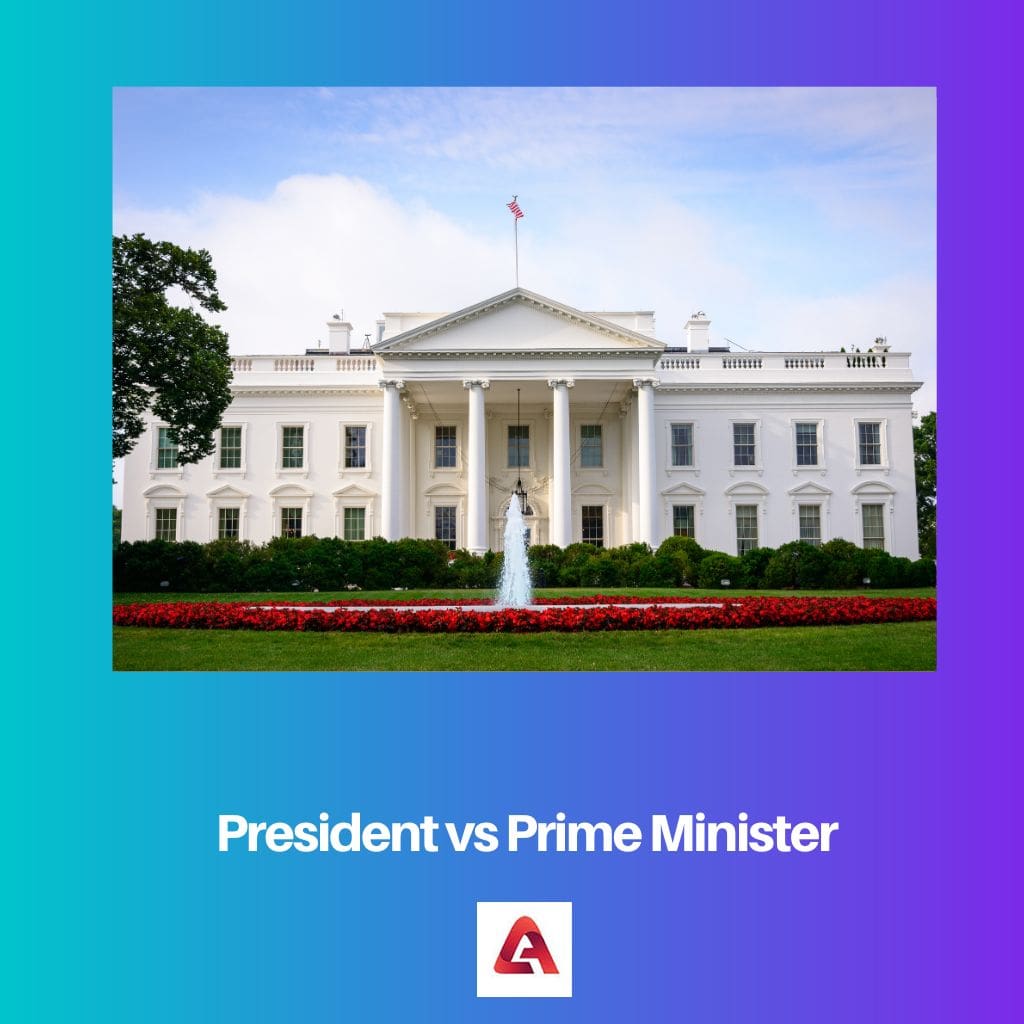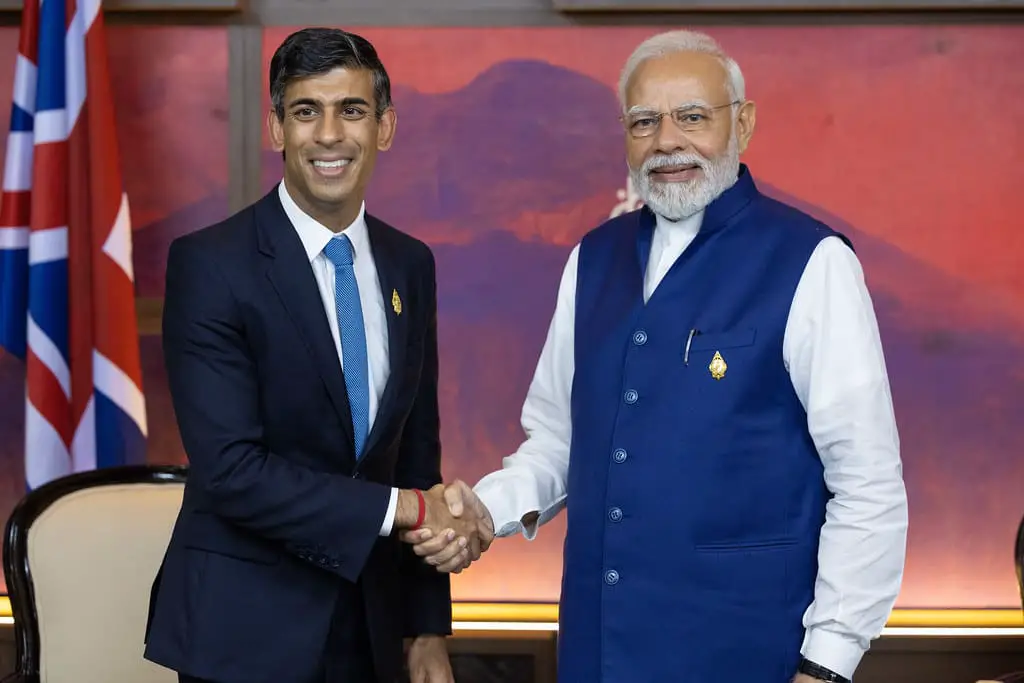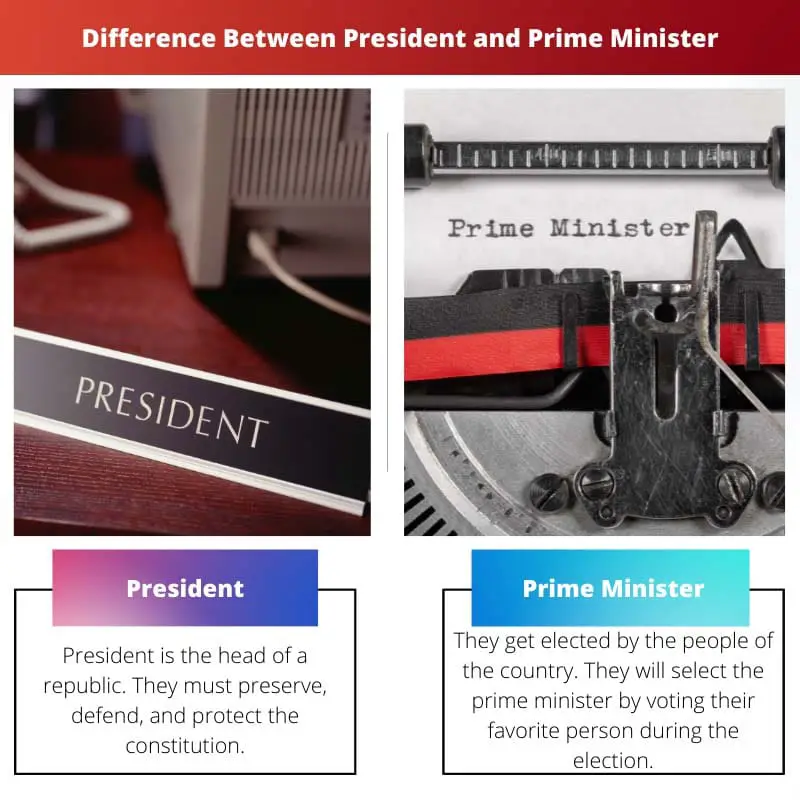Ruling the country is not an easy task. One should be very strong so that they can easily handle the people and provide the best solution for them.
A president and a prime minister are very important for a country to handle people and for solving their problems. Without them, a country cannot function properly. Every country will have its own rules and regulations for the president and prime minister.
Key Takeaways
- Presidents are the head of state and represent the nation, while prime ministers are the head of government and handle day-to-day governance.
- Presidential systems have a clear separation of powers, whereas parliamentary systems with prime ministers can have overlapping executive and legislative branches.
- Presidents are directly elected by citizens or an electoral college, while prime ministers are chosen by a majority party or coalition in the legislature.
President vs Prime Minister
A President is a country’s head of state who serves as the nation’s ceremonial representative and is responsible for maintaining the constitution. A Prime Minister is the head of government who manages the country’s day-to-day administration and is normally accountable to parliament.

The important role of the president is to carry out the laws that are passed by Congress.
Some of the good qualities that a president should have are they should see the country’s future with a strong vision, have effective communication skills, good character and integrity, courage to make unpopular decisions, and managing a crisis from the perspective of history they should have the ability to put their own times.
A prime minister can command a legislative assembly. In a parliamentary system, they can set a national agenda, appoint cabinet ministers, and govern the parties’ coalition.
The prime minister’s decision is final in the country, and everyone should follow that, including the president. This happens because they are the leader of the nation.
Comparison Table
| Parameters of Comparison | President | Prime Minister |
|---|---|---|
| Oath | They take oath in front of the chief justice | They take oath in front of the president |
| Election | Elected by the electoral college | Directly elected by the people |
| Head | They are the head of a country | They are the head of the cabinet and council of ministers |
| Judicial power | They have authority over judicial power | They have no authority over judicial power |
| State of emergency | They have no power in declaring a state of emergency | They have all the powers in declaring a state of emergency |
What is President?
President is the head of a republic. They must preserve, defend, and protect the Constitution. They also take an oath to protect the law of India.
The electoral college will indirectly elect them. The electoral college will have both parties called the Parliament of India and legislative assemblies.
Some of the main roles of the president are chief of state, chief administrator, commander in chief, party chief, chief diplomat, and chief citizen.
To become a president, the person should have certain qualities. They should be a citizen of India, their age should be 35 years or above, and they should be qualified to become a member of the Lok Sabha.
Certain officeholders can stand in the presidential election. They can be a current vice president and a union minister, including both prime and chief ministers. The president can make treaties by getting approval from the Senate.
During a war, they can act as a commander in chiefs. They can lead their political party. They can recognize foreign countries.
They can entertain foreign guests, grant pardons, appoint ambassadors, and talk directly to the people about their problems.
Some of the things a president cannot do, such as making laws, deciding the federal money to be spent in different ways, declaring wars, and interpreting laws, without senate approval, they cannot choose cabinet ministers or supreme court justices.

What is Prime Minister?
They get elected by the people of the country. They will select the prime minister by voting for their favorite person during the election. This election happens every 5 years.
In many systems, they are the pressing member and the chairman of the cabinet. They can select and dismiss the members of the cabinet. They can be a member of any two houses.
They can be either in Lok Sabha or Rajya Sabha. But they have to be a political party member and should have a majority in Lok Sabha. They are the senior-most member of the cabinet.
Their office will ensure that the prime minister’s activities flow correctly without any interruptions.
Some of the main duties of the prime minister are formally heading the government, allocating various departments to ministers, and acting as an executive in cabinet decisions.
In India, prime ministers have real and more powers. They make all the decisions, but they cannot do this alone. They have to do this with different groups of people.
In some other countries, a president will have more powers. It differs from country to country and its laws and regulations. For example, if we take the United States of America, a president will have more power in their hand than a prime minister.

Main Differences Between President and Prime Minister
- A president will take an oath in front of the chief justice. On the other hand, a prime minister will take an oath in front of the president.
- The electoral college will elect the president. On the other hand, a prime minister is directly elected by the people through an election which is held every 5 years.
- A president is the head of the country. On the other hand, a prime minister is the head of the cabinet and council of ministers.
- A president has authority over judicial power. On the other hand, a prime minister has no authority over judicial power.
- A president has no power to declare a state of emergency. On the other hand, a prime minister has all power to declare a state of emergency.

- https://journals.sagepub.com/doi/abs/10.1111/j.1467-9248.2006.00604.x
- https://academic.oup.com/pa/article-abstract/58/1/53/1534861

It’s interesting to see how the system varies from country to country. The roles and responsibilities of the president and prime minister greatly depend on the legal and political frameworks in each nation.
The detailed comparison provided in this article helps in understanding the critical roles of the president and prime minister. It’s fascinating to see the variations of these roles across different countries.
It is widely known that not everyone can lead a country as great as a president or a prime minister can. Only such a person who possesses a strong vision and excellent skills, can handle such a great role.
The article successfully outlines the clear differences between the roles of the president and the prime minister in various countries. It’s informative and helpful for understanding the global political landscape.
The article succinctly demonstrates the intricacies involved in the roles of presidents and prime ministers. It is indeed a learning experience to delve into the vast array of responsibilities held by these distinguished leaders.
The complexities surrounding the roles of presidents and prime ministers are elucidated in a thought-provoking manner. It’s indeed a brilliant piece of scholarly work.
The comprehensive nature of this article sheds light on the intricate responsibilities of presidents and prime ministers. The multifaceted roles played by these leaders significantly influence the functioning of nations.
It is quite evident that the powers and responsibilities of presidents and prime ministers are highly diverse. There is a need for a consolidated, universal understanding of these roles to ensure effective governance worldwide.
Perhaps the complex web of powers and responsibilities can be standardised with certain global protocols to establish global cohesiveness in governance.
It’s intriguing to note the nuances of political governance. A nuanced understanding of the powers of presidents and prime ministers can foster better international relations and governance systems.